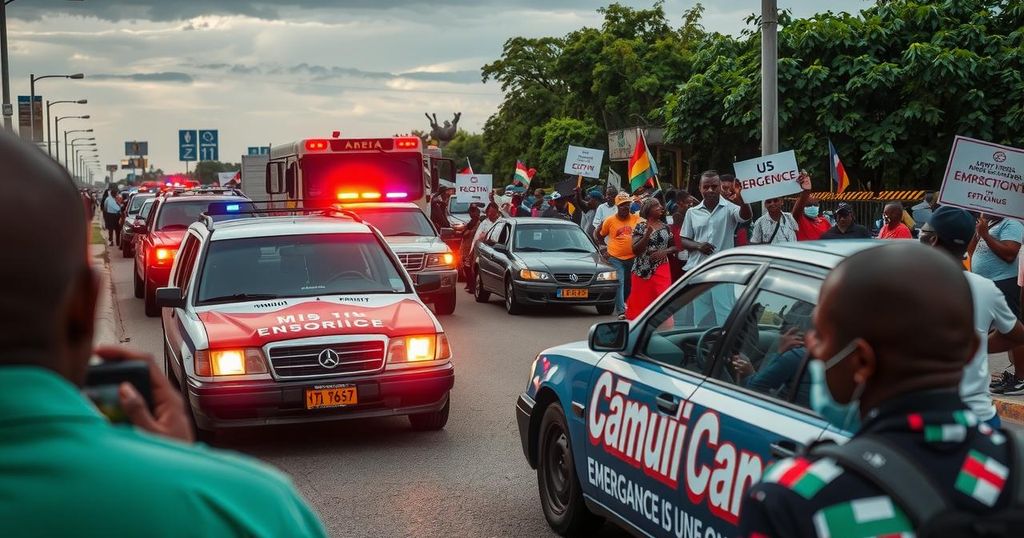Violence Erupts in Mozambique Following Disputed Election Results
Mozambique has witnessed violent unrest following the controversial confirmation of the ruling Frelimo party’s election victory, resulting in at least 21 deaths, including police. Intense clashes, vandalism, and calls for electoral integrity signal deep divisions within the nation, with fears of increased violence as opposition disputes the election’s legitimacy.
In the aftermath of Mozambique’s recent elections, violence has erupted, resulting in the deaths of at least 21 individuals, including two police officers, within a 24-hour period. The unrest was ignited by the controversial confirmation of the ruling Frelimo party’s victory in the October 9 elections, as upheld by the country’s highest court. Interior Minister Pascoal Ronda reported that 236 acts of serious violence occurred nationwide, injuring an additional 25 people, including 13 law enforcement officers.
Attacks featuring armed individuals employing bladed weapons and firearms targeted police stations and other infrastructures. Over 70 individuals were arrested in connection with the violence, which has severely impacted the capital, Maputo, as sporadic clashes entangled protesters and law enforcement. Reports indicate the capital was marked by depopulated streets, while demonstrators retaliated against police using projectiles, and makeshift barricades set ablaze created a smoky atmosphere throughout the city.
Conditions at Maputo Central Hospital were dire, as many medical staff members were unable to report for duty, leading to over 200 emergency admissions. The unrest affected various sectors of society, with many businesses shuttered, hindering traditional festivities typically associated with the Christmas Eve celebrations. Meanwhile, criticisms regarding the election process intensified, especially concerning allegations from exiled opposition leader Venâncio Mondlane, who claimed electoral malfeasance and branded the official results a humiliation.
The discontent among the populace is palpable, with calls for “electoral truth” gaining traction on social media as Mondlane states, “We must continue the fight, remain united and strong,” highlighting the growing divide between supporters of the Frelimo party and the opposition. With increasing violence leading to over 100 deaths since the elections, concerns persist regarding further escalations following Mondlane’s assertion of victory. Amidst the turmoil, Chapo, the declared president, issued a conciliatory address promising open dialogue with all members of the political spectrum in preparation for his impending inauguration.
In October 2023, Mozambique held presidential elections, marked by allegations of irregularities and a series of protests directed against the ruling Frelimo party, which has governed since 1975. The situation intensified after the official confirmation of Frelimo’s candidate Daniel Chapo as the election winner, a decision that incited widespread unrest and violence across several cities. This unrest reflects underlying tensions between the ruling party and the opposition, particularly led by exiled leader Venâncio Mondlane, who claims electoral fraud and is advocating for an alternative political representation.
In summary, violent confrontations following Mozambique’s disputed election have resulted in numerous fatalities and widespread unrest, underscoring the deep divisions within the country. The situation remains precarious as the population calls for accountability and transparency in the electoral process, while the ruling party strives to stabilize the community during this tumultuous period. The potential for further violence looms as the opposition continues to challenge the legitimacy of the election results and the newly elected president’s legitimacy.
Original Source: www.lemonde.fr




Post Comment